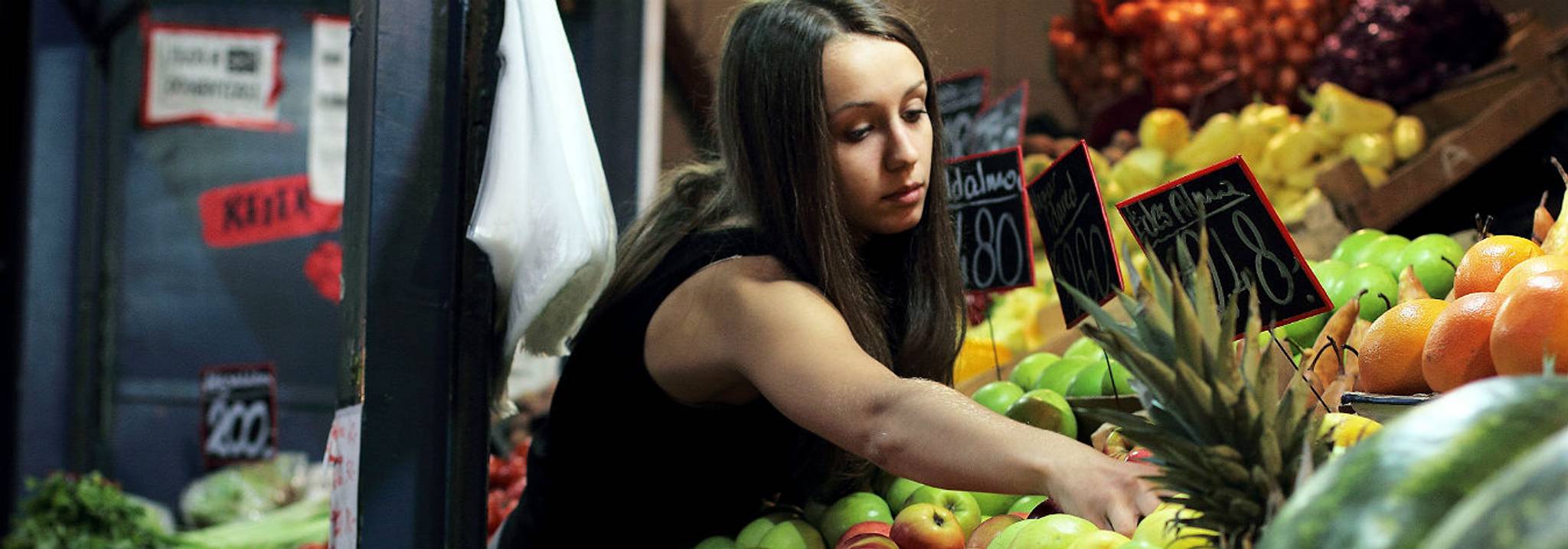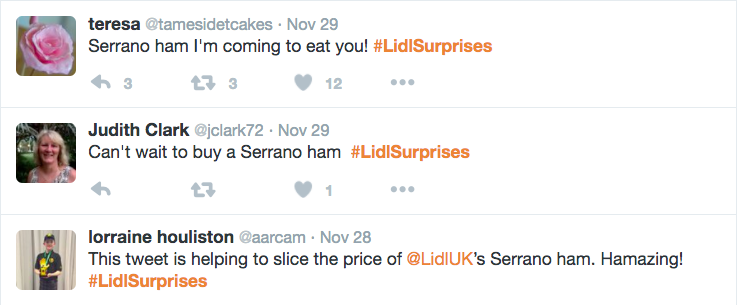
Christmas doesn’t come cheap; the average British family spends £800 over the course of the festivities, with many feeling the need to overspend. But this year, Lidl is minimising the food budget by giving people the power to price their own food. By lowering an item’s cost the more people tweet about it, the supermarket is provoking online conversation before bowing out, making itself a topic in the Twitter frenzy, rather than a voice.
The Social Price Drop puts the fate of one product a week in the hands of shoppers, who can whittle down its price via social media. Over two days, shoppers are invited to work up a Twitter storm over a popular item – like the £5.99 Christmas lobster – with every conversation around the #LidlSurprises hashtag serving to bump down the price. “Christmas is an expensive time of year for shoppers,” says Georgina Hall, head of communications at Lidl UK, “and as a retailer at the heart of Britain’s communities, our ambition is to put the control back into the hands of consumers, and save them even more in the run up to Christmas.”

With 72% of Brits saying they curb their spending at least occasionally – and studies suggesting they’re still spending like they’re in a recession – discount supermarkets have flourished in a nation of natural-born bargain hunters. But no one likes to scrimp over the holiday season. With 23% of people planning to borrow money for Christmas food this year – up two points from last year – Lidl is putting control into the hands of the consumer, meanwhile spreading the festive spirit of generosity.
People aren’t keen to spend their spare time communicating with brands, and patience is in decline – a fifth of Brits can’t last a minute on hold with a company before hanging up. And while a growing number of brands are using chatbots to make these dialogues feel more casual, Lidl’s campaign bypasses this, letting people communicate with the brand by interacting with each other, instead. With a throng of holiday shoppers tweeting meme-friendly selfies with lobsters, the company positions itself as the in-joke in the midst of an online discussion. Through making a game of itself on social media, Lidl uses internet culture to foster a sense of camaraderie among shoppers, placing itself at the heart of a new Christmas tradition.
Discover more insights like this by signing up to the Canvas8 Library.
Mira Kopolovic is a writer and researcher, with an MA in creative industries, which focused on artist-brand collaborations. She spends her spare time poring over dystopian literature.
Lore Oxford is Canvas8's deputy editor. She previously ran her own science and technology publication and was a columnist for Dazed and Confused. When she’s not busy analysing human behaviour, she can be found defending anything from selfie culture to the Kardashians from contemporary culture snobs.